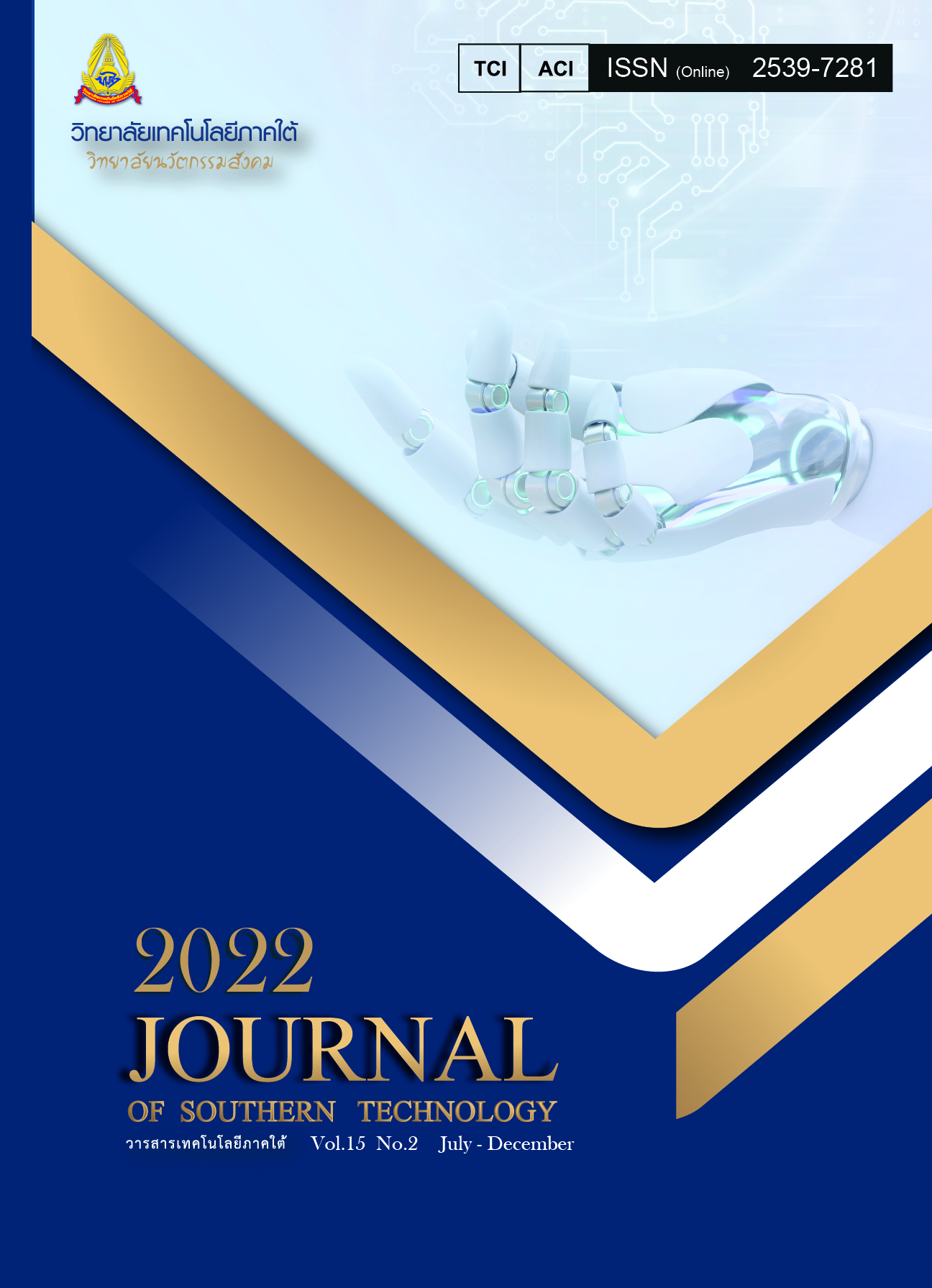A Study of Canonical Correlation between Service Quality and Consumer Behavioral Intention of Spa Business Customers in Phuket Province
Main Article Content
Abstract
Phuket is one of the world’s famous tourist destinations and has a growing trend of health business which has continually generated incomes for the country. Consequently, Phuket has lots of spa business and high competition, and entrepreneurs expect customers are satisfied with the service quality and have the intention to re-visit or recommending others to keep the customers. Therefore, the researcher is interested to study the relationship between related aspects of service quality and consumer behavioral intentions that help formulating marketing strategies for spa businesses. This research aims to analyze the canonical correlation between service quality and consumer behavioral intention of spa businesses in Phuket. Four hundred and twenty people experiencing spa business in Phuket were selected as a sample by convenience sampling. A questionnaire was used as the research instrument. Data were analyzed by using a descriptive statistic including frequency, percentages, mean, standard deviation and the canonical correlation analysis. The research finding highlighted that the canonical correlation coefficient of the relation between service quality and customer behavioral intentions were 0.702. The canonical loading factor of service quality were 0.748–0.943. The clients stressed on the importance of customer empathy and thus the business can gain customer loyalty. The canonical loading factor of consumer behavior intentions were 0.967 and 0.880 respectively. The findings showed that the first factor of service quality to be considered by entrepreneurs is empathy for individual customers to suit their needs to show that they are special. They want to be understood and taken care of from the service providers.
Article Details

This work is licensed under a Creative Commons Attribution-NonCommercial-NoDerivatives 4.0 International License.
-
Authors must agree to the journal publication rules and allow the editors to edit the manuscripts for publication.
-
Author’s right belongs to the author but Journal of Southern Technology holds the right of first publication and thus allow readers to use the article for the purpose of education but not commercial.
References
Ajzen, I. (1991). The theory of planned behavior. Organizational Behavior and Human Decision Processes, 50(2), 179-211.
Arlanda, R., & Suroso, A. (2018). The influence of food & beverage quality, service quality, place, and perceived price to customer satisfaction and repurchase intention. Journal of Research in Management, 1(1), 28-37.
Best, J. W., & Kahn, J. V. (2006). Research in Education. Boston: Allyn and Bacon.
Bolton, R. N., Kannan, P. K., & Bramlett, M.D. (2000). Implications of loyalty program membership and service experiences for customer retention and value. Journal of the Academy of Marketing Science, 28(1), 95-108.
Cao, M., & Chen, C. (2011). An analysis of port service quality and customer satisfaction: the case of Korean container ports. The Asian Journal of Shipping and Logistics, 31(4), 437-447.
Cronbach, L.J. (1990). Essentials of Psychological Testing (5th ed.). New York: Harper Collins.
Cronin, J.J., Brady, M.K., & Hult, G.T. (2000). Assessing the effects of quality, value, and customer satisfaction on consumer behavioral intentions in service environments. Journal of Retailing, 76(2), 193-218.
Kanjan, C. (2019). The Influence of Service Quality, Perceived Value, and Brand Image Towards Willing to Pay Through Customer Satisfaction of Government Savings Bank in The Western Area of Thailand (Research Report). Nakhon Pathom: Silpakorn University. [in Thai]
Klunpakdee, P. (2018). The standards of Thai spa quality award and how they influence foreign customer level of satisfaction. Journal of Humanities and Social Sciences Mahasarakham University, 37(3), 97–110. [in Thai]
Leong, W.Y., Lim, Z.H., Korzh, V., Pietri, T., & Goh, E.L. (2015). An SEM–artificial-neural network analysis of the relationships between SERVPERF, customer satisfaction and loyalty among low-cost and full-service airline. Expert Systems with Applications, 42(19), 6620-6634.
Mensah, I., & Mensah, R.D. (2018). Effects of service quality and customer satisfaction on repurchase intention in restaurants on University of Cape Coast Campus. Journal of Tourism, Heritage & Services Marketing, 4(1), 27-36.
Ninlaput, R. (2018). Service Quality and Satisfaction Related to Customer’s Repurchase at Paolo Rangsit Hospital Service (Research Report). Pathum Thani: Rajamangala University of Technology Thanyaburi. [in Thai]
Oliver, R.L. (1999). Whence consumer loyalty. Journal of Marketing, Special Issue(63), 33-44.
Parasuraman, A., Zeithaml, V.A., & Berry, L.L. (1985). A conceptual model of service quality and its Implications for future research. Journal of Marketing, 49, 41 - 50.
Robinson, S., & Etherington, L. (2006). Customer Loyalty: A Guide for Time Travelers. New York: Palgrave Macmillan.
Sherry, A., & Henson, R.K. (2005). Conducting and interpreting canonical correlation analysis in personality research: A User-Friendly Primer. Journal of Personality Assessment, 84(1), 37-48.
Taylor, S.A., & Baker, T.L. (1994). An assessment of the relationship between service quality and customer satisfaction in formation of consumers’ purchase intentions. Journal of Retailing, 70, 163-178.
Zhao, Q. (2016). A Study of Factors Influencing Chinese Spa Service Tourists to Revisit Bangkok, Thailand (Research Report). Bangkok: University of the Thai Chamber of Commerce.

